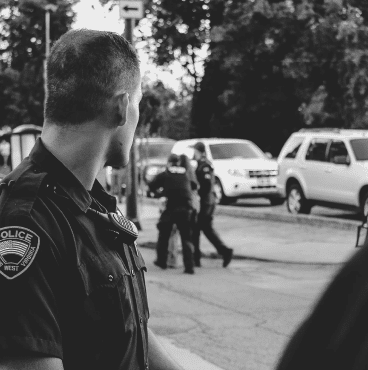While the Supreme Court hasn’t addressed the matter, other federal courts have. Recording the police has been recognized as a protected right under the First Amendment by the 1st, 3rd, 5th, 7th, 9th, 10th, and 11th U.S. Circuit Courts of Appeals.
Today was the second time recently that I recorded the police at a traffic stop in public, and the second time that the police absolutely saw me doing it. The first time, I’m quite sure the outcome of the stop was a lot better than it would have been had I not been seen recording. This time, maybe.
Recording the police while they are on duty reminds them that they are being observed. This reminder can change police behavior. If you see a traffic stop, and it is safe for you to do so, recording the interaction is a good thing.
- Keep your distance
- Do not interact with anyone involved in the stop while it is going on
- Staying inside your own stopped vehicle makes any claim of “interference” fall flat
- If you are addressed by police, you need to explicitly state your desire to not answer questions

